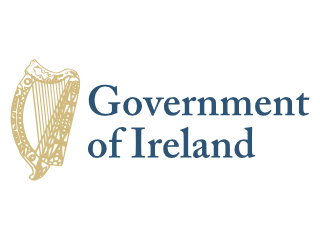Celtic tribes arrived on the island between 600 and 150 B.C. Invasions by Norsemen that began in the late 8th century were finally ended when King Brian BORU defeated the Danes in 1014. Norman invasions began in the 12th century and set off more than seven centuries of Anglo-Irish struggle marked by fierce rebellions and harsh repressions. The Irish famine of the mid-19th century saw the population of the island drop by one third through starvation and emigration. For more than a century after that the population of the island continued to fall only to begin growing again in the 1960s. Over the last 50 years, Ireland's high birthrate has made it demographically one of the youngest populations in the EU. The modern Irish state traces its origins to the failed 1916 Easter Monday Uprising that touched off several years of guerrilla warfare resulting in independence from the UK in 1921 for 26 southern counties; six northern (Ulster) counties remained part of the UK. Unresolved issues in Northern Ireland erupted into years of violence known as the "Troubles" that began in the 1960s. The Government of Ireland was part of a process along with the UK and US Governments that helped broker what is known as The Good Friday Agreement in Northern Ireland in 1998. This initiated a new phase of cooperation between the Irish and British Governments. Ireland was neutral in World War II and continues its policy of military neutrality. Ireland joined the European Community in 1973 and the euro-zone currency union in 1999. The economic boom years of the Celtic Tiger (1995-2007) saw rapid economic growth, which came to an abrupt end in 2008 with the meltdown of the Irish banking system. Today the economy is recovering, fueled by large and growing foreign direct investment, especially from US multi-nationals.
Ireland is a parliamentary republic.
Source: CIA World Factbook
Members:
Resources
Displaying 101 - 105 of 137Planning and Development (Amendment) Act, 2010 (No. 30 of 2010).
This Act principally amends the Planning and Development Act, 2000 so as to, among other things, change the list of legal acts of the European Union given effect to by the principal Act and to provide for a wide variety of environmental protection measures in relation with planning and development including protection of habitats, landscape, water resources and biodiversity. The Planning and Development Act, 2000 and the Waste Management Act, 1996 are amended in relation with protection of European sites as defined by the principal Act.
European Communities (Good Agricultural Practice for Protection of Waters) (Amendment) Regulations 2011 (S.I. No. 125 of 2011).
These Regulations amend the European Communities (Good Agricultural Practice for Protection of Waters) Regulations 2010 in article 17 concerning distances from a waterbody to be observed in use of fertilizer so as to allow a local authority to apply a landspreading restriction to the upstream catchment area and to the close proximity downstream of an abstraction point in the case of any surface waters.
Amends: European Communities (Good Agricultural Practice for Protection of Waters) Regulations 2010 (S.I. No. 610 of 2010). (2010-12-20)
European Communities (Environmental Impact Assessment) (Amendment) Regulations 2006 (S.I. No. 659 of 2006).
These Regulations amend the provisions of the Planning and Development Act 2000 and the Planning and Development Regulations 2001 in relation with revised procedures for enhancement of public participation in the environmental impact assessment of projects having transboundary environmental impacts.
Waste Management (Facility Permit and Registration) Regulations 2007 (S.I. No. 821 of 2007).
These Regulations set out procedures for the making of applications for waste facility permits for the purposes of section 39(4) of the Waste Management Act, 1996 and a waste authorization to be granted by the Environmental Protection Agency. The Regulations also provide rules relative to public consultation, consideration by local authorities of submissions in relation to permit applications, and the grant, refusal and review of collection permits by local authorities.
Planning and Development Regulations, 2005 (S.I. No. 364 of 2005).
These Regulations amend the Planning and Development Regulations 2001 in provisions relation to, among other things, environmental impact assessment for peat extraction so as to facilitate consideration of the need for the assessment of projects which are likely to have significant effects on the environment according to the criteria set out in Schedule 7 of the Regulations.


